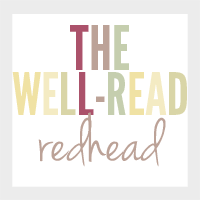Author: Stephen Yafa
Publisher: Avery
Publication Date: May 12, 2015
Source: copy received from the publisher for an honest review
Summary from Goodreads:
No topic in nutrition is more controversial than wheat. While mega-sellers like Grain Brain and Wheat Belly suggest that wheat may be the new asbestos, Stephen Yafa finds that it has been wrongly demonized. His revealing book sets the record straight, breaking down the botany of the wheat plant we’ve hijacked for our own use, the science of nutrition and digestion, the effects of mass production on our health, and questions about gluten and fiber— all to point us towards a better, richer diet.
Wheat may be the most important food in human history, reaching from ancient times to General Mills. Yafa tours commercial factories where the needs of mass production trump the primacy of nutrition, and reports on the artisan grain revolution. From a Woodstock-like Kneading Conference to nutrition labs to a boutique bakery and pasta maker’s workshop in Brooklyn, he also finds that there may in fact be a perfect source of wheat-based nutrition. Its name is sourdough.
For readers of Salt Sugar Fat and The Omnivore's Dilemma , Grain of Truth smoothly blends science, history, biology, economics, and nutrition to give us back our daily bread.
My Review:
This book was of interest to me because, of course, I am a bit of a food science nerd. However, I also have several friends who are gluten sensitive and/or have celiac disease, so my curiosity was heightened more than usual. I often get annoyed by people who go gluten-free without having any particular health reason to do so, but more because they are following the latest diet fad. Doesn't this make things a little harder for the people who actually can't eat gluten, but are now taken less seriously because of all the bandwagon jumpers? (I have heard a counterpoint to this though, I believe from Heather at Capricious Reader--that it makes life easier for celiacs, because there are more gluten-free options now, given heightened demand. So I suppose it could go either way.) Anyway, as soon as I read the description for Stephen Yafa's journalistic approach to this topic, I knew I had to give it a go.
First, I really enjoyed Yafa's lighthearted tone throughout the book. He obviously did a lot of well-rounded, in-depth research for this project, but his voice has a levity that will keep readers engaged. Everybody likes a well-timed bread joke, right? Yafa's more casual, personable tone makes his narrative stand out from that of other food science writers (ie. Michael Pollan (not that I don't think you are personable or funny, Michael Pollan, you know I am a groupie for life)).
Yafa does begin the book by exploring the trend towards gluten-free--who is doing it because they need to, and who is doing it because it just seems healthier. From there, he gets to the real meat of it (wheat of it?)--is an avoidance of gluten really going to make you healthier? And while people with celiac really must avoid wheat at all costs, is there anything that people with gluten sensitivity (less serious than celiac) can do to incorporate wheat into their diets safely?
Yafa's findings are extremely interesting. I won't go through all the conclusions here (I'll make you read the book, of course!), but he uncovered a lot of scientific studies about gluten sensitivity that could be real game-changers in the gluten-free movement in the coming years. I'll give a warning that some of the heavily scientific chapters towards the middle can get a tad dry, making my head spin with all the talk of proteases and amino acids and microbiomes. That said, it's all good information--just not the type of reading I would do if you're not prepared to be fully steeped in the book for a while. (My "I'll just read for a while before bed, even though I've been up since 5am, but I'm sure I can stay focused!" routine was not always a good one.)
Anyone with celiac's disease or gluten sensitivity--I highly recommend this for you. But obviously, the appeal for this book goes beyond that (since I'm about as gluten-unfree as they come). Foodies, lovers of foodie non-fiction, and really anybody who wants a better understanding of what they're eating, are sure to find something fascinating between these pages.
Are any of my loyal blog readers gluten-free? By necessity, or by choice? How do you think this book would influence your daily diet (if at all)?
Avery Books has generously offered to give away a copy of Grain of Truth to one of my lucky readers! Enter using the Rafflecopter form below. US entrants only please. Ends May 21!
a Rafflecopter giveaway









